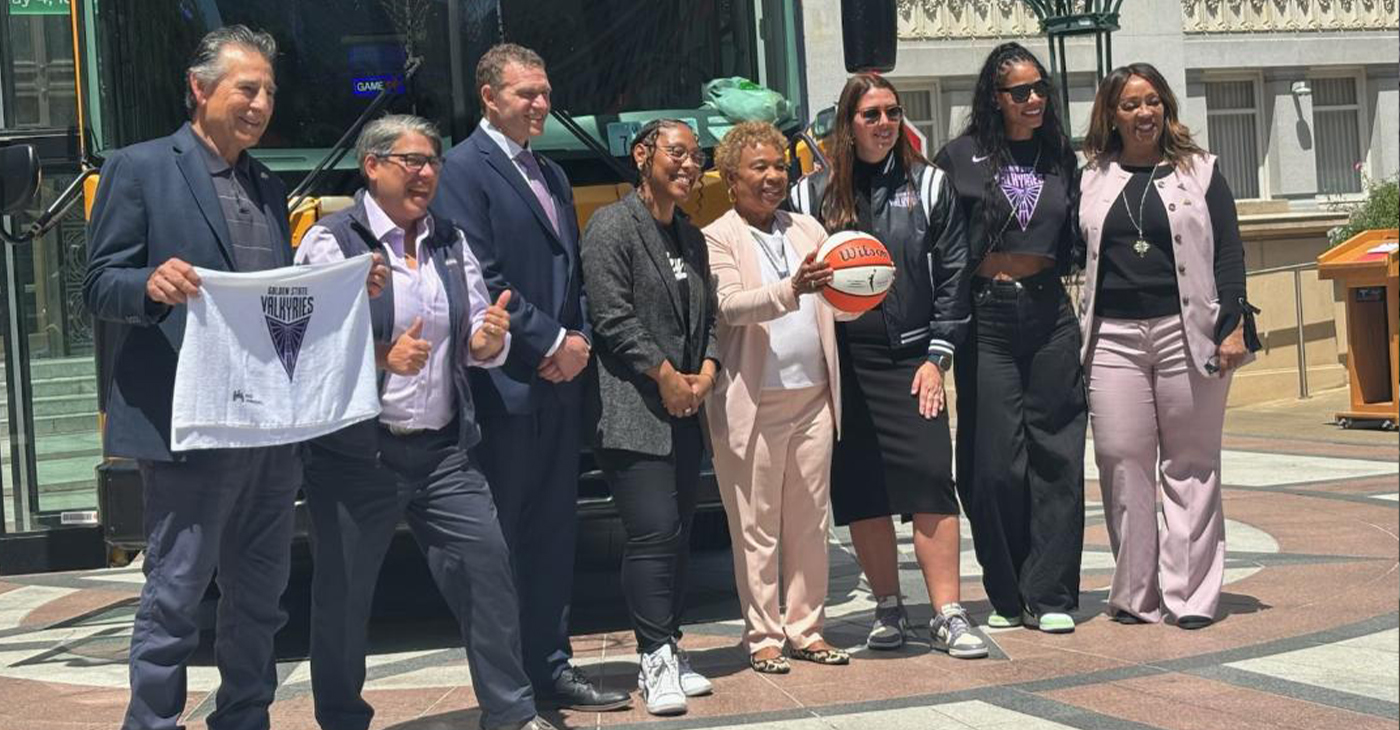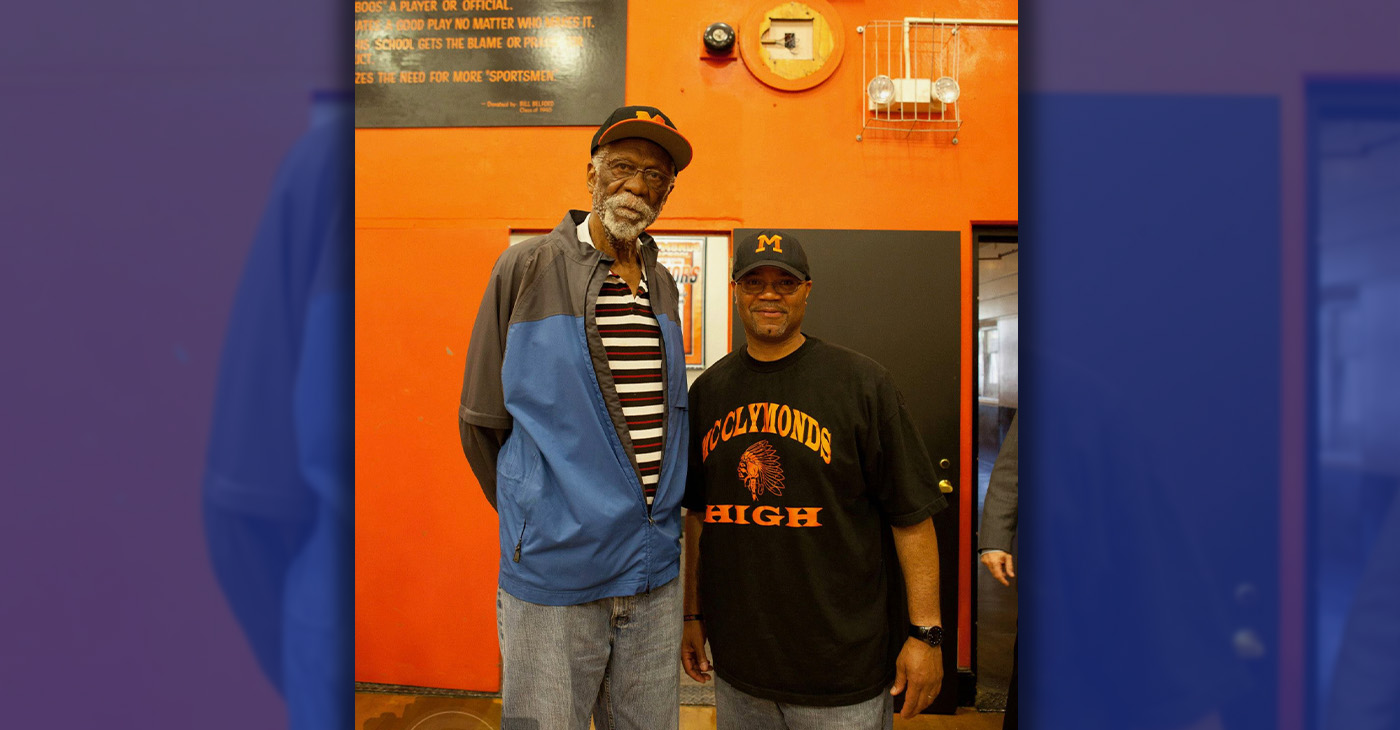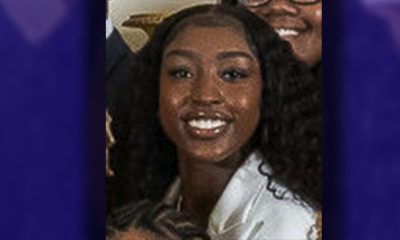Sports
Gonzaga Headed to Elite Eight for 1st Time Since 1999

Gonzaga players celebrate after the second half of a college basketball regional semifinal game in the NCAA Tournament against UCLA, Friday, March 27, 2015, in Houston. Gonzaga won 74-62. (AP Photo/David J. Phillip)
Kriste Rieken, ASSOCIATED PRESS
HOUSTON (AP) — Growing up in Poland, Przemek Karnowski had to stay up until 2 or 3 a.m. to watch the NCAA Tournament.
Gonzaga’s big man got to star in the show in prime time on Friday night, scoring 18 points with nine rebounds to lead the second-seeded Bulldogs to a 74-62 win over No. 11 seed UCLA in the Houston Regional semifinals.
The victory puts Gonzaga (35-2) in the Elite Eight for the second time, its first regional final since 1999. The Bulldogs will play top-seeded Duke on Sunday.
UCLA (22-14) opened the second half with a 6-0 run to get within 35-34. Gonzaga got going after that, scoring the next 12 points, thanks to the powerful inside game of the 7-foot-1, 288-pound Karnowski to make it 47-34.
“For me it was always a dream to be here and to play deep into the NCAA Tournament,” Karnowski said. “And right now I’m here and I’m trying to enjoy every second of it.”
Karnowski helped the Bulldogs grab six more offensive rebounds than UCLA, which Bruins coach Steve Alford believes was the key to the game.
“We didn’t rebound the basketball,” Alford said. “They got too many second shots.”
Gonzaga’s Kyle Wiltjer raved about Karnowski’s work.
“He was a beast down there, just gobbling up offensive boards,” Wiltjer said. “It’s so easy for us, especially when we’re on the perimeter, to just throw it down to him and he gets a bucket.”
The Bruins, who lost in the Sweet 16 for the second straight year, were done in by a tough shooting night that included long stretches without scoring. They were led by Norman Powell’s 16 points.
They quieted doubters who questioned whether they should be in the tournament by winning their first two games, but couldn’t stay with the Bulldogs on a night when their shots weren’t falling. Powell made just 8 of 19 shots and Bryce Alford was 3 of 11.
It’s Gonzaga’s second win over UCLA this season after also beating the Bruins in December. Gonzaga’s only loss to UCLA in the four-game history of the series came in a 73-71 defeat in the regional semifinal in 2006.
It will be the first trip to the round of eight for Gonzaga coach Mark Few, who took over the season after they last made it.
“The one accomplishment that we haven’t done is reach the Final Four and we finally have an opportunity to do that,” Few said.
The Bruins couldn’t find any offense as Gonzaga built its lead early in the second half.
Domantas Sabonis drew ooh’s and ahh’s from the crowd when the 6-10 Lithuanian grabbed a bounce pass from Karnowski and sailed over Isaac Hamilton for a one-handed dunk that made it 51-37 with 11 minutes remaining.
Karnowski found Sabonis again a few minutes later, when he passed it behind his back and Sabonis finished with a layup to push the lead to 14 points.
Gonzaga was up 13-10 less than six minutes into the game when both offenses went cold, combining to miss the next 19 shots.
There were missed layups, shots from the outside that clanged off the rim and even a couple of air balls. No matter what either team tried, they simply couldn’t make a shot for about 6 1/2 minutes. Gonzaga extended the lead a bit with three free throws.
Powell finally ended the field goal drought when he drove into the lane and his layup mercifully fell through the net to cut the lead to 16-12 about eight minutes before halftime. The Bulldogs scored a few seconds later on a jump shot by Karnowski.
Gonzaga led 35-28 at halftime.
VENUE TO BLAME FOR POOR SHOOTING?
With both teams struggling to shoot, many questions were asked about whether the venue caused problems. The games are being played in NRG Stadium, which is home to the Houston Texans, and the setup, with no walls behind either basket, challenges players’ depth perception.
Entering Friday’s game, teams have shot a combined 39.8 percent in nine NCAA Tournament games at NRG. UCLA shot 38.8 percent on Friday and Gonzaga shot 40.3 percent.
But no one on either team would use that as an excuse.
“We just missed shots,” Wiltjer said. “You either make them or you don’t. We don’t really blame it on the arena or anything like that.”
TIP-INS
UCLA: Alford had eight points. … Looney had nine points and eight rebounds.
Gonzaga: Wiltjer had eight points and 10 rebounds after leading the team in their first two tournament games with 23 and 24 points. … Sabonis scored 12 points before fouling out late.
UP NEXT:
UCLA: As their season ends they wait to see if Looney will stay or declare for the NBA.
Gonzaga: Faces the winner of the Utah-Duke game on Sunday in the regional final.
Copyright 2015 The Associated Press. All rights reserved. This material may not be published, broadcast, rewritten or redistributed.
###
Alameda County
Seth Curry Makes Impressive Debut with the Golden State Warriors
Seth looked comfortable in his new uniform, seamlessly fitting into the Warriors’ offensive and defensive system. He finished the night with an impressive 14 points, becoming one of the team’s top scorers for the game. Seth’s points came in a variety of ways – floaters, spot-up three-pointers, mid-range jumpers, and a handful of aggressive drives that kept the Oklahoma City Thunder defense on its heels.

By Y’Anad Burrell
Tuesday night was anything but ordinary for fans in San Francisco as Seth Curry made his highly anticipated debut as a new member of the Golden State Warriors. Seth didn’t disappoint, delivering a performance that not only showcased his scoring ability but also demonstrated his added value to the team.
At 35, the 12-year NBA veteran on Monday signed a contract to play with the Warriors for the rest of the season.
Seth looked comfortable in his new uniform, seamlessly fitting into the Warriors’ offensive and defensive system. He finished the night with an impressive 14 points, becoming one of the team’s top scorers for the game. Seth’s points came in a variety of ways – floaters, spot-up three-pointers, mid-range jumpers, and a handful of aggressive drives that kept the Oklahoma City Thunder defense on its heels.
One of the most memorable moments of the evening came before Seth even scored his first points. As he checked into the game, the Chase Center erupted into applause, with fans rising to their feet to give the newest Warrior a standing ovation.
The crowd’s reaction was a testament not only to Seth’s reputation as a sharpshooter but also to the excitement he brings to the Warriors. It was clear that fans quickly embraced Seth as one of their own, eager to see what he could bring to the team’s championship aspirations.
Warriors’ superstar Steph Curry – Seth’s brother – did not play due to an injury. One could only imagine what it would be like if the Curry brothers were on the court together. Magic in the making.
Seth’s debut proved to be a turning point for the Warriors. Not only did he contribute on the scoreboard, but he also brought a sense of confidence and composure to the floor.
While their loss last night, OKC 124 – GSW 112, Seth’s impact was a game-changer and there’s more yet to come. Beyond statistics, it was clear that Seth’s presence elevated the team’s performance, giving the Warriors a new force as they look to make a deep playoff run.
Barbara Lee
WNBA’s Golden State Valkyries Kick Off Season with Community Programs in Oakland
“The Golden State Valkyries are more than a team—they’re a movement,” said Oakland Interim-Mayor Kevin Jenkins. “Their touchdown in Oakland marks a new era of opportunity, inspiration, and equity in sports. This partnership reflects our city’s deep commitment to uplifting women, investing in youth, and building a community where every dream has a place to grow. We’re proud to welcome the Valkyries to The Town.”

Team installs new nets at playgrounds, holds flag-raisings at City Halls in Oakland and S.F.
Special to The Post
The Golden State Valkyries brought the excitement of their inaugural season to every corner of the Bay Area with a full slate of community celebrations leading up to their historic home-opener against the Los Angeles Sparks at the Chase Center in San Francisco on Friday.
The week featured flag-raising ceremonies at city halls in Oakland and San Francisco, three “Violet Net” installation days at Oakland parks to encourage basketball play, fun “Hoopbus” takeovers at multiple schools presented by Kaiser Permanente, and player appearances.
“The Golden State Valkyries are more than a team—they’re a movement,” said Oakland Interim-Mayor Kevin Jenkins. “Their touchdown in Oakland marks a new era of opportunity, inspiration, and equity in sports. This partnership reflects our city’s deep commitment to uplifting women, investing in youth, and building a community where every dream has a place to grow. We’re proud to welcome the Valkyries to The Town.”
In total, 90 violet nets were installed on 45 basketball courts across 34 public parks throughout Oakland this week. A list of the parks receiving violet nets can be found at Valkyries.com.
About the Golden State Valkyries
The Golden State Valkyries, the WNBA affiliate of the seven-time NBA Champion Golden State Warriors, were announced as the 13th WNBA franchise on Oct. 5, 2023. According to Norse mythology, Valkyries are a host of warrior women who are fearless and unwavering – flying through air and sea alike.
This brand is Golden State’s modern interpretation of Valkyries: strong, bold, and fierce. Tipping off during the 2025 WNBA season, the team is headquartered in Oakland and will play home games at Chase Center in San Francisco. For Golden State Valkyries’ assets, including team logos, visit valkyries.com.
Activism
McClymonds High Names School Gym for Star Graduate, Basketball Legend Bill Russell
William “Bill” Felton Russell was born on Feb. 12, 1934, and died on July 31, 2022. He achieved fame as a U.S. professional basketball player who played center for the Boston Celtics of the National Basketball Association (NBA) from 1956 to 1969. He was the centerpiece of the Celtics dynasty that won 11 NBA championships during his 13-year career.

By Ken Epstein
West Oakland’s McClymonds High School, “the School of Champions,” this week named the school’s gymnasium in honor of one of its most famous graduates, basketball legend Bill Russell (class of ’52).
William “Bill” Felton Russell was born on Feb. 12, 1934, and died on July 31, 2022. He achieved fame as a U.S. professional basketball player who played center for the Boston Celtics of the National Basketball Association (NBA) from 1956 to 1969. He was the centerpiece of the Celtics dynasty that won 11 NBA championships during his 13-year career.
Russell is widely known as one of the greatest basketball players of all time. In 2011, he received the Presidential Medal of Freedom, the country’s highest civil honor, from President Barack Obama for Russell’s contributions to basketball and the Civil Rights Movement.
The McClymonds’ naming ceremony was held on Wednesday, the same day as Russell’s birthday. Oakland leader Bill Patterson, a longtime friend of Russell’s, was scheduled to cut the ribbon at the reopening of the gym, which had been closed for several months for renovation. Russell’s daughter Karen was scheduled to attend the ribbon cutting.
Russell’s name and signature are now printed on the gymnasium floor.
Patterson was working at DeFremery Park when he met Russell. “I befriended him as a boy and during his years at University of San Francisco” said Patterson. “We stayed friends for the rest of his life.”
Said McClymonds Principal Darielle Davis, herself a McClymonds graduate, “We are excited to honor Bill Russell for his sports accolades and because he broke color barriers. He is part of our legacy, and legacy is really important at McClymonds.”
Brian McGhee, community schools manager at McClymonds and former football player at UC Berkeley, said that Russell meant a lot to him and others at the school. “He was a beacon of light and hope for West Oakland,” he said. “He did a lot for sports and for civil rights.”
Starting in 2018, Ben “Coach” Tapscott worked with Patterson and other McClymonds grads, community members, and former coaches to encourage the Oakland Board of Education to endorse the naming of the school gym, which finally happened recently.
“We worked hard to make this happen,” said Tapscott. “He’s an important part of McClymond’s history, along with a lot of other famous graduates,” he said.
-

 Activism3 weeks ago
Activism3 weeks agoOakland Post: Week of November 12 – 18, 2025
-

 Activism3 weeks ago
Activism3 weeks agoIN MEMORIAM: William ‘Bill’ Patterson, 94
-

 Activism3 weeks ago
Activism3 weeks agoHow Charles R. Drew University Navigated More Than $20 Million in Fed Cuts – Still Prioritizing Students and Community Health
-

 Bay Area3 weeks ago
Bay Area3 weeks agoNo Justice in the Justice System
-

 #NNPA BlackPress3 weeks ago
#NNPA BlackPress3 weeks agoThe Perfumed Hand of Hypocrisy: Trump Hosted Former Terror Suspect While America Condemns a Muslim Mayor
-

 #NNPA BlackPress2 weeks ago
#NNPA BlackPress2 weeks agoLewis Hamilton set to start LAST in Saturday Night’s Las Vegas Grand Prix
-

 #NNPA BlackPress3 weeks ago
#NNPA BlackPress3 weeks agoTrump’s Death Threat Rhetoric Sends Nation into Crisis
-

 #NNPA BlackPress4 weeks ago
#NNPA BlackPress4 weeks agoProtecting Pedophiles: The GOP’s Warped Crusade Against Its Own Lies






















































